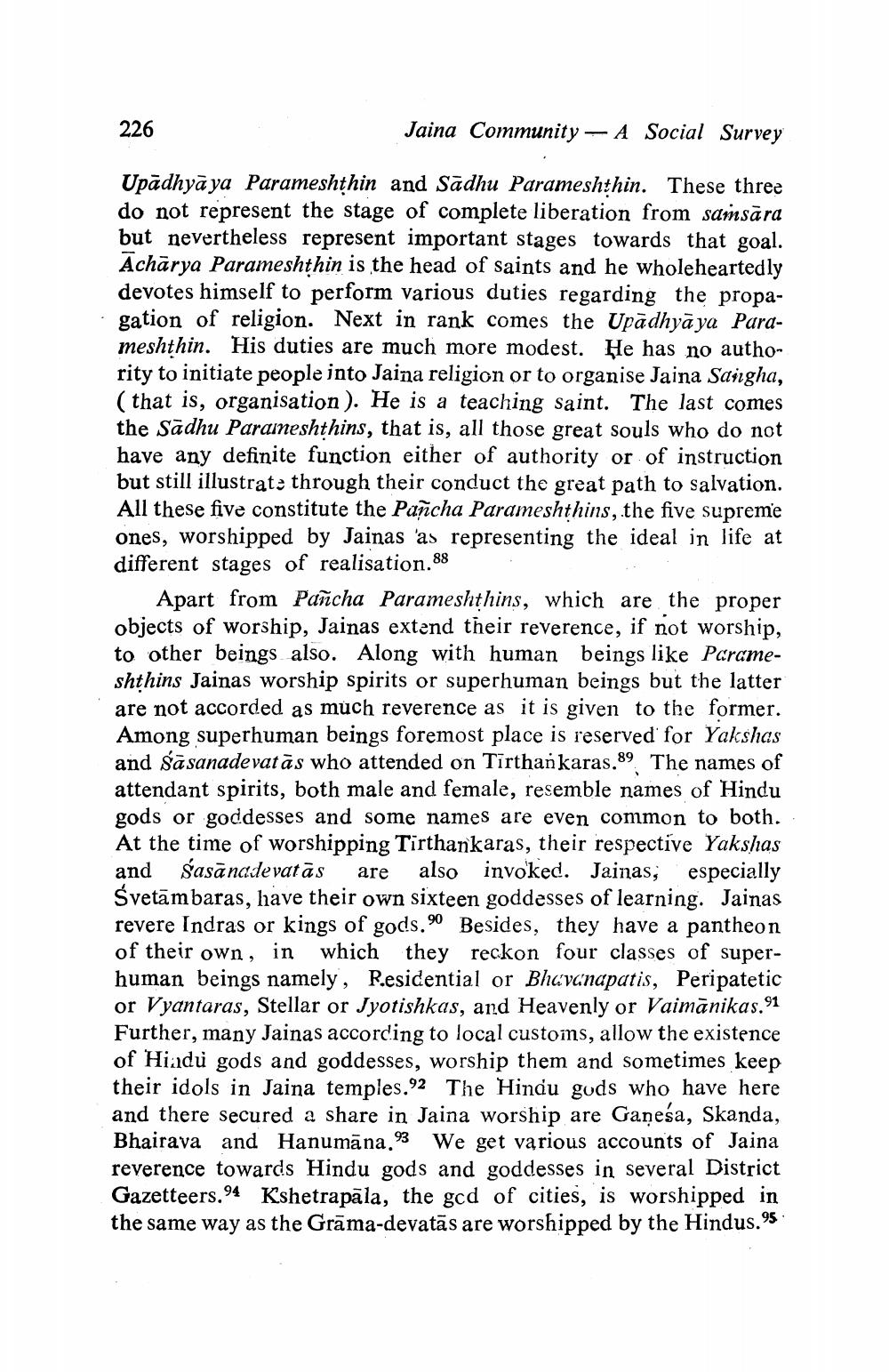________________
226
Jaina Community - A Social Survey
Upādhyā ya Parameshthin and Sadhu Parameshthin. These three do not represent the stage of complete liberation from samsāra but nevertheless represent important stages towards that goal. Achārya Parameshthin is the head of saints and he wholeheartedly devotes himself to perform various duties regarding the propagation of religion. Next in rank comes the Upadhyā ya Parameshthin. His duties are much more modest. He has no authority to initiate people into Jaina religion or to organise Jaina Saigha, (that is, organisation). He is a teaching saint. The last comes the Sadhu Paraineshthins, that is, all those great souls who do not have any definite function either of authority or of instruction but still illustrate through their conduct the great path to salvation. All these five constitute the Pañcha Parameshthins, the five supreme ones, worshipped by Jainas 'as representing the ideal in life at different stages of realisation.88
Apart from Pañcha Parameshthins, which are the proper objects of worship, Jainas extend their reverence, if not worship, to other beings also. Along with human beings like Parameshthins Jainas worship spirits or superhuman beings but the latter are not accorded as much reverence as it is given to the former. Among superhuman beings foremost place is reserved for Yakshas and sāsanadevatās who attended on Tīrthankaras.89 The names of attendant spirits, both male and female, resemble names of Hindu gods or goddesses and some names are even common to both. At the time of worshipping Tirthankaras, their respective Yakshas and śasā nadevatās are also invoked. Jainas, especially Śvetämbaras, have their own sixteen goddesses of learning. Jainas revere Indras or kings of gods.90 Besides, they have a pantheon of their own, in which they reckon four classes of superhuman beings namely, Residential or Bhavanapatis, Peripatetic or Vyantaras, Stellar or Jyotishkas, and Heavenly or Vaimānikas. 91 Further, many Jainas according to local customs, allow the existence of Hindu gods and goddesses, worship them and sometimes keep their idols in Jaina temples.92 The Hindu gods who have here and there secured a share in Jaina worship are Ganesa, Skar Bhairava and Hanumāna.93 We get various accounts of Jaina reverence towards Hindu gods and goddesses in several District Gazetteers.94 Kshetrapāla, the god of cities, is worshipped in the same way as the Grāma-devatās are worshipped by the Hindus. 95.




